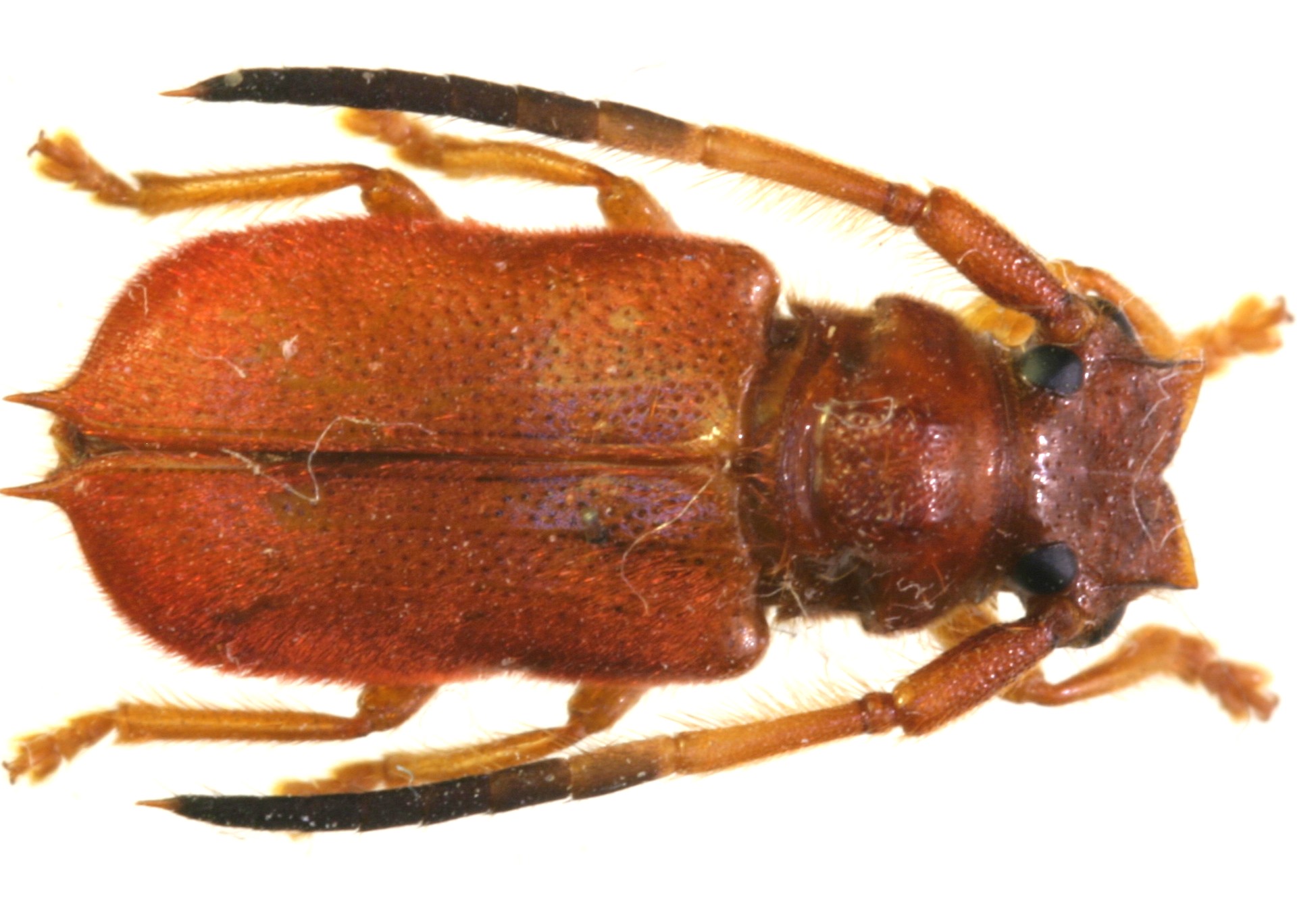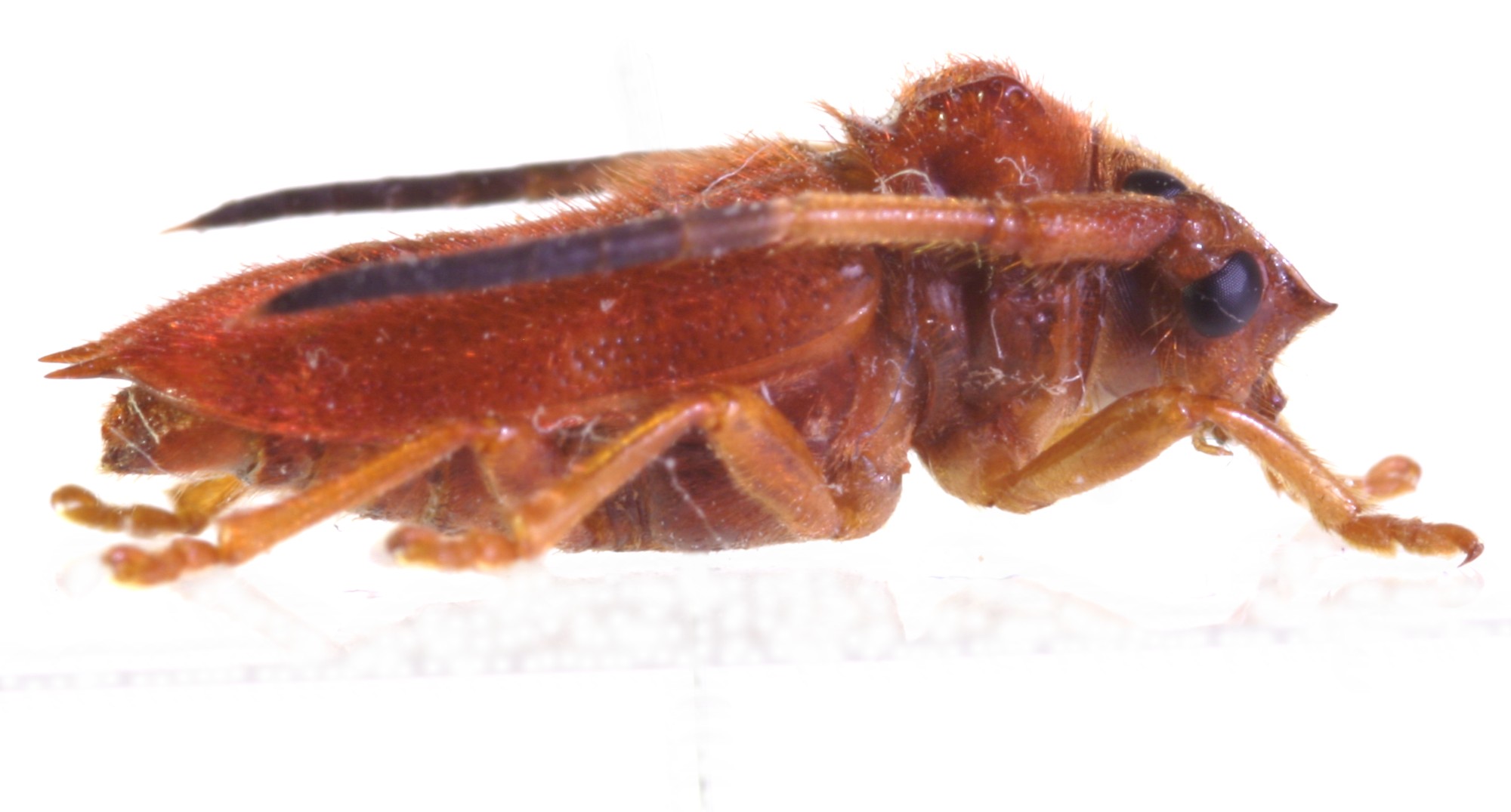| T O P I C R E V I E W |
| cerambyphil |
Posted - 19/03/2013 : 20:56:44

325.64 KB
Belitung, 10 mm |
| 11 L A T E S T R E P L I E S (Newest First) |
| dryobius |
Posted - 02/05/2013 : 16:42:57
Hi Francesco..
I appreciate the information. Thank you. |
| Francesco |
Posted - 02/05/2013 : 09:31:27
Unfortunately, Titan base is wrong here.
The volume IV of the Transactions of the Entomological Society of London was published between 1856 and 1858.
The first two parts (1856) arrive to page 48 (please confront here).
Accordingly, Pascoe's paper should be dated back to October 1856 (pp. 42-48) and January 1857 (pp. 49-50) respectively.
I am glad to contribute to improve your terrific catalog.
|
| dryobius |
Posted - 02/05/2013 : 04:06:29
according to Tavakilian's Titan web site, which has nice bibliographies... he lists publication date for this paper by Pascoe as April 1857. And it appears to be Pascoe's 2nd paper published that year. Previously, I have followed many old citations which listed this paper as being from 1856. My Bornean catalog will need a fix... again. |
| Francesco |
Posted - 28/04/2013 : 10:42:06
Yes, you can read the original publication here.
The date of a new year/paper was printed on the page 49 (foot note).
Practically, near all paper must be dated back to 1856. |
| Beckey |
Posted - 28/04/2013 : 01:05:51
Thank you Francesco.
I saw http://www.catalogueoflife.org/annual-checklist/2013/details/species/id/9620474.
But now, I confirm the publication year. |
| Francesco |
Posted - 27/04/2013 : 18:58:20
Attention que l'année de publication est 1856! |
| dryobius |
Posted - 27/03/2013 : 20:11:43
Yes, clearly it is Tropimetopa simulator |
| cerambyphil |
Posted - 27/03/2013 : 16:18:25

189.31 KB
Hello Dryobius, here is the lateral photography. |
| dryobius |
Posted - 27/03/2013 : 11:54:53
Hi Cerambyphil,
Can you provide an image of the lateral view of this specimen? Tropimetopa simulator has a very large protuberance on the pronotum which is not easily seen by a dorsal image. The elytra are very slightly convex, too, which are distinctive. My Tropimetopa have more elongate spines at the apex of the elytra than this specimen.
The only other Astathini which I know which has spines at the elytral apex is Ochrocesis evanida Pascoe, which I recently was able to identify based on a photo of the type. So this species is possibly Tropimetopa, but the shape of the frons (on the head) is interesting. |
| Beckey |
Posted - 20/03/2013 : 00:05:00
Tropimetopa simulator (Pascoe, 1857) in my opinion |
| dryobius |
Posted - 19/03/2013 : 21:46:36
I have 10-12 Astathini species from Borneo which are similar, including one like this! This could be a Bacchisa sp. Note the spine on the apex of the elytron. Note the tip of the last antennal segment... pointed and testaceus. The frons is prolonged (a lateral view show this unusual feature) .
Yes, I think I have a couple specimens from Sabah which is the same species. I don't know what it is. This tribe and genus needs study, because I think there are quite a few undescribed spp. |


